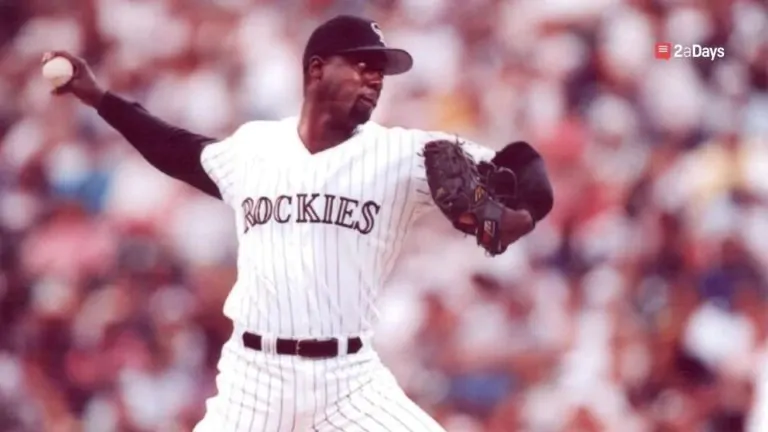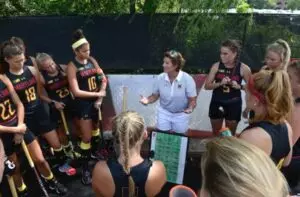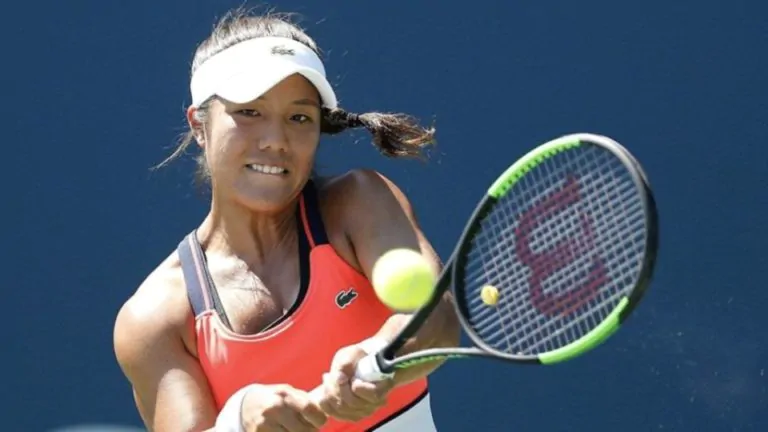A former Major League Baseball player, Marvin Freeman (also known as Starvin' Marvin), is now a coach in the Marquis Grissom Baseball Association (MGBA). Before being the #2 pick for the Philadelphia Phillies in 1984, Freeman played baseball at Jackson State University. A 6-and-a-half-foot pitcher out of Chicago, Illinois, Freeman holds the lowest ERA for the Colorado Rockies and boasted a 1.72 ERA his first year with the Atlanta Braves. On top of his low ERAs, over his career, he had a winning percentage well over .500 with two trips to the World Series. Now Freeman, a dad of two and Atlanta youth baseball mentor, helped his son play baseball at the collegiate level and continues to help boys all over the Atlanta area continue their dream of playing collegiate baseball. The retired Major League Baseball player gives his advice to NCAA hopeful athletes from his personal recruiting process, his son's, and what he has learned from coaching young boys in Atlanta.
Related: Rate your Coaches, Facilities, and Campus Visits
Marvin knows the value of perfect fielding mechanics and a consistent hitter on the field but believes your role as a student comes first. Freeman states, “A lot of times athletes believe their athletic abilities are enough and that's not the case. Coaches are looking for players who will be academically eligible to play that next season. The university is investing in you, and if you cannot play because of academics, it is a waste of a scholarship”. He also mentioned how many opportunities prospective athletes create for themselves when they invest in their grades. MGBA has a tutoring program in place exclusively for athletes in the organization. The upcoming recruits have somewhere to turn when they feel their grades slipping, “You have to improve on your weaknesses in class, just like you would for a game. The tutoring program can broaden opportunities when it comes to targeting a school of choice”. Other than grades throughout a high school career, Marvin says preparing for any standardized testing will help tremendously in your recruiting process. In his experience, Division I schools will not consider a recruit without a 3.5 GPA and ACT scores in the range of 23 and 25. He believes athletes need to take grades seriously from the beginning because future colleges will notice if you slacked off before and are just now trying to clean it up. “Athletes cannot be poor students in high school and if they are it is going to be impossible to handle being a student-athlete at a DI university.”
Related: 5 Reasons Grades are Important as an Athletic Recruit
Being the Best Recruit
Athletes have to do a little bit more marketing of their skills compared to when Marvin was playing, but he believes the best ways to do this include social media and sending short highlight videos to your prospective coaches. “College coaches do not have the time and resources to see every recruit in the country; the player should be their own promoter.” Freeman also touched on the multi-sport athlete and how it benefits a recruit's game by stating that the more sports you play, the better athlete you will be. Marvin says when an athlete plays more than one sport his or her body learns muscle memory that the body may not have been introduced to if specializing in one sport. Along with the added physical benefits, playing multiple sports adds opportunities when it comes to playing in college. Something Marvin likes to pass down to his athletes with MGBA is the idea of sacrifice. “Recruits need to understand that sometimes it's going to be productivity over your social life.” Athletes need to learn outside factors should not take away from their athletic responsibilities.
Social Media
Social media can affect the way a coach looks at a prospective student-athlete, and Marvin understands the effect one bad tweet could have on an athlete's recruiting process. “Once it's out there, you can't get it back.” Freeman thinks athletes should tread carefully when it comes to their social media accounts. If there is any thought in your mind that something is controversial, do not post it! He believes social media should be used for good and suggests athletes post videos of their highlights from games, sport-based interests, and other activities that could give you leverage as a prospective recruit. Marvin has noticed more and more college coaches utilizing social media as a tool to vet prospects.
Parents
Marvin, a retired collegiate and professional athlete and current coach to the next generation, is also a father of two. The role of a parent during recruitment was something Marvin adjusted to and he considers parents as involved parties. During his son's recruiting process, Marvin learned that parents should get to know the coaches and do their research. Parents must understand how a prospective coach will shape their child into a productive student and adult first. The decision is ultimately the athlete's, however parents should be “a springboard for their athletes” considering 17 and 18 is a young age to make such a huge decision.
Losing Hope?
I asked Marvin what he would tell recruits who feel like they have fallen through the cracks and he explained why he feels it is all about exposure. “That's difficult, a lot of it is due to lack of exposure. Some of your best players haven't even been discovered.” He justified alternative ideas by stating that just because you may have fallen through the cracks does not mean you will not make it to your dream school, you may have to take a different route. Marvin believes future recruits should base their personal process off of where they see themselves obtaining a degree in four years to avoid hopping from school to school trying to play. “If another school wants you, not your dream school, you go there. You take a chance of being a walk-on or a junior college to get to the next level.”
YOU MADE IT!
You were recruited and offered a scholarship, but the work is not over. Now that you are a collegiate student-athlete, the work has just begun. Marvin's tips for continuing to succeed in college include responsibility and preparation. His main tip for recruits and college athletes was to “grow up,” your parents are not there to help anymore. Being a student-athlete, the responsibility falls on you, and when it comes to preparation, Freeman said many athletes forget the mental part. He claims getting to a certain level means everyone is talented and what will separate you is your drive and motivation. “Being a successful student-athlete is about how you get better on a daily basis, not just on the field.”
Have an idea for a story or a question you need answered? Want to set up an interview with us? Email us at [email protected]
* Originally published on June 3, 2022, by Caelyn Elwin







